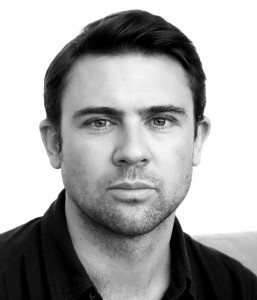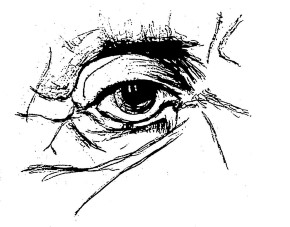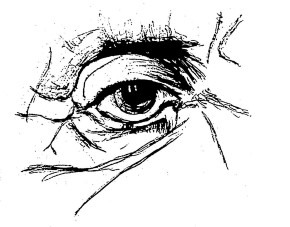
Sheers, Owen
Childhood and educationOwen Sheers was born on 20th September 1974 in Suva, Fiji, where he lived until he was three. When he was nine, Sheers and his family moved from London to South Wales, near Abergavenny, which serves as the setting for his novel Resistance (2007). Despite briefly leaving Abergavenny to study at the University of Oxford, and then the University of East Anglia for his Creative Writing Masters (MA), Sheers still calls Abergavenny home and continues to live in nearby Talgarth. Sheers’ work has always been heavily influenced by Wales and its national identity and heritage. Indeed, in December 2011, Sheers was appointed by the Arts Council of Wales as the first ever artist-in-residence at the Welsh Rugby Union (WRU) – resulting in the publication of Calon: A Journey to the Heart of Welsh Rugby (2012), a novel that recounts his experience and interviews with the players and coaching staff at WRU.
Sheers’ work – writing Wales
Throughout Sheers’ work, there is a strong sense of place, particularly the Welsh landscape and infrastructure. Sheers’ first collection of poetry, The Blue Book (2000), draws on his experience of farming life in Wales, and was shortlisted for the Wales Book of the Year prize. In his debut work of fiction, Resistance (2007), Sheers reimagines World War II with a successful invasion of Britain by Germany, narrating the arrival of the Germans in a secluded Welsh valley, a landscape in which isolation from the raging war outside forces individuals to re-examine their understanding of ‘the enemy’. In 2011, Sheers helped adapt the work for film, co-writing the screenplay with Amit Gupta, the film’s director.
Like Resistance, Sheers’ 2009 novella White Ravens also draws on the events of World War II, with a focus on the landscape and ancient myths of his Welsh heritage. However, it is Sheers’ anthology of poetry entitled Skirrid Hill (2005) in which the landscape of Wales features most prominently. Skirrid Hill takes its name from a small peak on the edge of the Black Mountains, and Sheers’ anthology explores conflict, the importance of place and identity, division, and loss, using the metaphor of the hill as an anchor for his exploration.
More than just a poet or novelist
Sheers has also been involved in several works of theatre, television and radio. In 2007, Sheers’ play If I Should Go Away, a short production adapted from the works of Welsh war poet Alun Lewis, was broadcast on BBC Radio 4, and in 2012 Sheers presented a short piece about the famous Welsh poet Dylan Thomas for the station’s Great Lives programme. In 2009, he presented the BBC Four series A Poet’s Guide to Britain, in which he travels around the British Isles exploring the landscapes that inspired the work of poets such as William Wordsworth, Sylvia Plath and Matthew Arnold, and for which he wrote an accompanying book.
Sheers is probably most experimental in his works of theatre, with his dramatic work even including an oratorio (a narrative work featuring voices and orchestral music) entitled The Water Diviner’s Tale, which premiered at the Royal Albert Hall in 2007. Written with the film composer Rachel Portman, Sheers’ oratorio explores the effect and issue of climate change. His latest theatrical endeavours explore the theme of war and its physical and psychological effects on the individual. They include The Two Worlds of Charlie F. (2012) – a play that features a cast of wounded and injured service personnel – and Mametz (2014). Inspired by what is arguably Sheers’ best-known poem, ‘Mametz Wood’, from his Skirrid Hill collection, Mametz (2014) draws upon the writings of several famous poets who fought in the Battle of Mametz Wood to offer audiences an intense, large-scale resurrection of the Somme’s trenches and battlefields. In 2017, Sheers’ verse drama Pink Mist (2013), which depicts the lives of three wives who must deal with the physical and psychological effect of the Afghan war on their partners, toured throughout the UK to critical acclaim.
Sheers today
In 2018, Sheers published his latest book, The Green Hollow, a poetic history of the Welsh mining village Aberfan, and his latest poem, ‘To Provide All People’, a moving piece commemorating the 70th anniversary of the National Health Service. In 2019, Sheers was selected as a member of the judging panel for the prestigious Rathbones Folio Prize for Literature. Sheers currently holds the post of Professor in Creativity at Swansea University.
© ZigZag Education 2026: content may be used by students for educational use if this page is referenced.
Show / hide details
| 1974 |
Owen Sheers born in Fiji
|
|
| 2000 |
Publication of The Blue Book, Sheers’ first poetry collection
|
|
| 2004 |
Publication of The Dust Diaries
|
|
| 2005 |
Publication of Skirrid Hill
|
|
| 2006 |
Sheers’ one-man play Unicorns, Almost was produced by the Old Vic New Voices group
|
|
| 2007 |
Publication of Resistance
|
|
| 2009 |
Publication of White Ravens
|
|
| 2011 |
Premiere of film adaptation of Sheers’ novel Resistance |
|
| 2011 |
Publication of The Gospel of Us, Sheers’ novelisation of Michael Sheen’s play The Passion
|
|
| 2012 |
Publication of Calon: A Journey to the Heart of Welsh Rugby
|
|
| 2013 |
Sheers received the Hay Festival Medal for Poetry for his verse drama Pink Mist |
|
| 2014 |
National Theatre Wales produced Sheers’ site-specific play Mametz
|
|
| 2015 |
Publication of I Saw A Man
|
|
| 2016 |
Sheers’ film-poem The Green Hollow premiered on the BBC
|
|
| 2018 |
Publication of The Green Hollow
|
Acknowledgements
Image source: www.owensheers.co.uk





